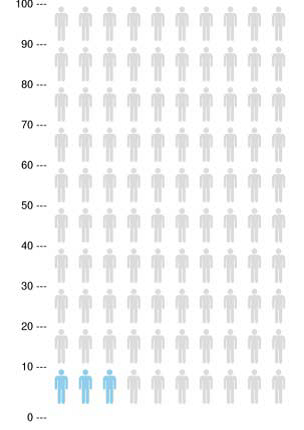
Is Celiac Disease Hereditary. Now there are other conditions like celiac symptoms or are sensitive to gluten not celiac or allergic to gluten. However not all cases of celiac disease are triggered by a genetic history. HLA-DQ2 and HLA-DQ8 are the names of two genetic markers which are part of the immune system and are able to stick to the gluten proteins. The evolution and spread of genetic disease is fascinating because genetic diseases spread through inheritance only really shouldnt exist.

Prevalence of celiac disease. HLA-DQ2 and HLA-DQ8 are the names of two genetic markers which are part of the immune system and are able to stick to the gluten proteins. Occurrence increases even further in twins up to 60-70. They are caused by having alleles versions of a gene Scientists think they have an origin story for celiac disease American Council on Science and Health. Over time this reaction damages your small intestines lining and prevents it from. However even if a child inherits HLA-DQ2 andor HLA-DQ8 celiac disease susceptibility it does not mean the child will have celiac disease.
If you have celiac disease eating gluten triggers an immune response in your small intestine.
The answer to this puzzle is yes. While research has provided a better. Celiac disease is a multifactorial disorder resulting from the interaction of HLA-DQA1 and HLA-DQB1 allelic variants known to be associated with celiac disease susceptibility less well-recognized variants in non-HLA genes gliadin a subcomponent of gluten and other environmental factors. This hereditary predisposition has been strongly linked to the human leukocyte antigen HLA system located on chromosome 6. People with a first-degree relative with celiac disease parent child sibling have a 1 in 10 risk of developing celiac disease. Questions like is celiac disease hereditary is celiac disease genetic is celiac disease inherited from parents and still many more of them are interesting questions for todays article to discuss.